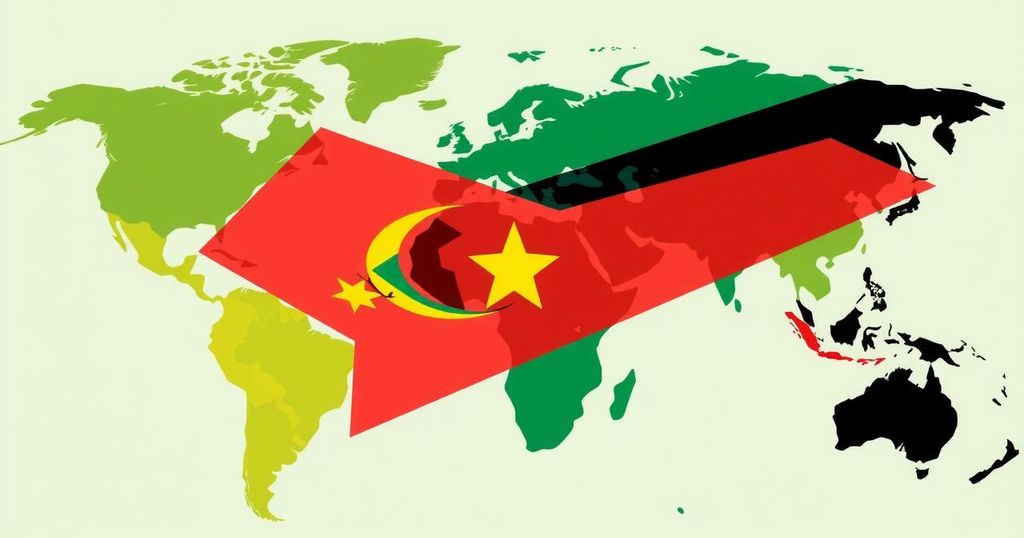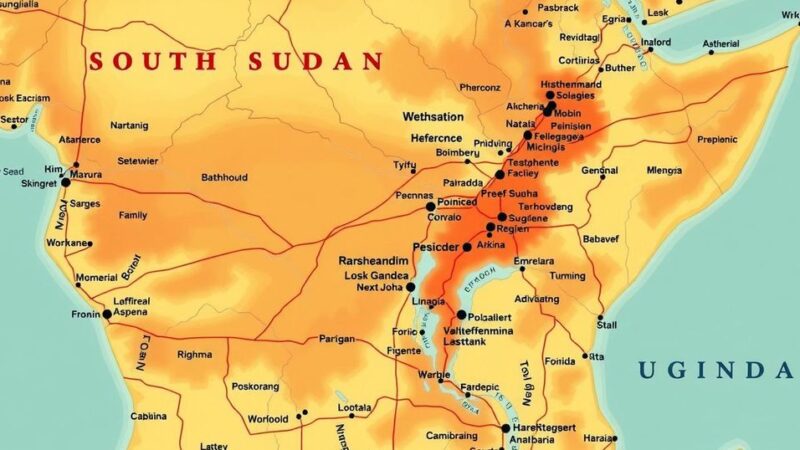Zimbabwe aims to join BRICS, highlighting the alliance’s potential for economic cooperation. This aspiration follows a meeting between Zimbabwean officials and Russian leaders, emphasizing shared interests in key sectors. While BRICS remains cautious about new memberships, Zimbabwe’s efforts reflect a broader trend in Africa to foster independent economic partnerships and reduce colonial legacies.
Zimbabwe is actively pursuing membership in BRICS, as highlighted by the Minister of Foreign Affairs and International Trade, Amon Murwira, following his discussions in Moscow. He emphasized the significance of BRICS as a platform for economic cooperation founded on mutual respect and sovereign equality among nations. This potential inclusion would mark an extension of BRICS’ African representation, alongside recent additions like Egypt and Ethiopia.
Discussions between Murwira and Russian Foreign Minister Sergei Lavrov centered on pivotal sectors, including mining, energy, agriculture, and defense. Lavrov reiterated Russia’s commitment to bolster African defense capabilities and emphasized strengthening military readiness and law enforcement in the region. Murwira stressed the necessity of transitioning Harare’s relationship with Moscow into a robust economic partnership.
Zimbabwe is seeking to forge paths away from Western dominance, particularly in light of its historical struggles following independence in 1980. The nation has experienced severe economic turbulence, with significant currency devaluation. The desire to join BRICS reflects a broader trend in Africa, where countries are reassessing their relations with former colonial powers, signaling a potential shift towards alternative alliances.
However, BRICS has been cautious about expanding its membership, pausing new applications. Countries like Syria, Thailand, and Turkey have expressed interest, but Lavrov confirmed that the group will focus on internal matters in the interim. The complexities of African unity within the alliance could also pose challenges, as showcased by disputes, such as those between Egypt and Ethiopia over resource management.
The Zimbabwean government is constitutionally inclined to engage with global organizations that promote peace through economic interaction, making BRICS an appealing option. Recent visits to Russia by Zimbabwean officials included strategic dialogues about bilateral cooperation and economic ties. Furthermore, the introduction of a new gold-backed currency in Zimbabwe aligns with one of BRICS’ requirements for membership, signaling serious intentions to join the group.
The potential inclusion of Zimbabwe in BRICS could redefine its international alignments, giving it a platform to enhance economic development and reduce Western influence. As the upcoming summit in July 2025 approaches, the response of existing BRICS members to Zimbabwe’s aspirations will become clearer.
Zimbabwe’s pursuit of membership in BRICS stands as a strategic move to empower its economic sovereignty and diminish Western influence. With historical ties to colonial powers, the nation seeks to leverage partnerships that uphold principles of mutual respect. While BRICS currently maintains a cautious approach toward admitting new members, Zimbabwe’s commitment to establishing a robust economic platform, along with its recent currency innovations, may position it favorably for future inclusion in the alliance.
Original Source: fakti.bg






